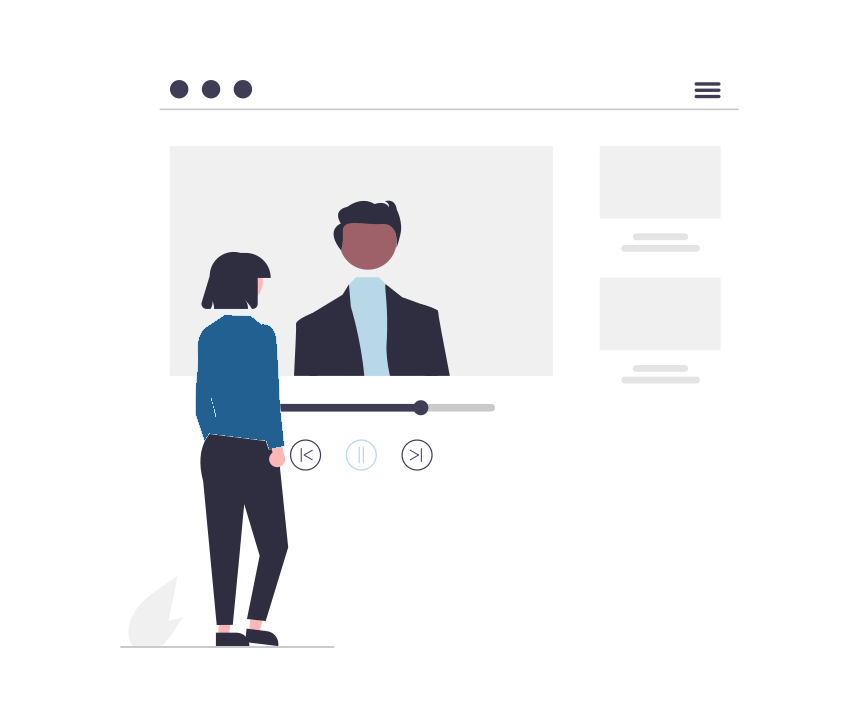Lifelong Learning
Engagement in self-assessment of digital skills. Using self-reflection to tailor accessible digital environments and continue digital skills learning.

Guiding Questions
- Do I take time to reflect on what I’ve learned and set goals for what I still want to learn?
- When I need to learn something new, am I able to find and use online resources?
- Am I able to adapt to new tools and technology, building on my current skills and experiences?

![]() Open in Google Sheets
Open in Google Sheets![]() Open in Google SlidesFor more digital skills vocabulary resources, visit the Digital Skills Glossary
Open in Google SlidesFor more digital skills vocabulary resources, visit the Digital Skills Glossary
| Term | Definition |
|---|---|
| adaptability | (n) the ability to adjust or change in response to new conditions or situations |
| artificial intelligence | (n) a field of computer science where machines do tasks that usually need human intelligence |
| automation | (n) the act or process of controlling machines or devices without needing someone to do it manually |
| badge | (n) an icon awarded to a user for an achievement |
| certification | (n) a professional qualification that certifies a person's ability. |
| course | (n) a class (or classes) in a specific subject |
| digital literacy | (n) the ability to use information and communication technologies to find, evaluate, create, and communicate information, requiring both cognitive and technical skills |
| digital resilience | (n) having the awareness, skills, agility, and confidence to be empowered users of new technologies and adapt to changing digital skill demands |
| ethical AI | (n) the practice of creating and using AI in ways that are fair, safe, and respectful to people |
| forum | (n) a place (often on the Internet) where people can talk and share information |
| generate | (n) the practice of creating and using AI in ways that are fair, safe, and respectful to people |
| generative AI (GenAI) | (n) a type of artificial intelligence that can create new content like text, images, music, or videos based on patterns it has learned from data |
| goal | (n) something you want to do or be able to do |
| input | (n) the data an AI application uses to learn or to perform a task |
| Internet of Things (IoT) | (n) network of everyday objects—like thermostats, lights, cars, or smartwatches—that are connected to the internet and can collect, send, or receive data. |
| large language models (LLMs) | (n) advanced AI systems trained on large amounts of text to understand and generate human-like language |
| machine learning | (n) a way computers learn to do things by themselves using data and patterns |
| microcredential | (n) a focused credential that can be earned in a short period of time, and is often competency-based |
| model | (n) a computer program that learns from data to make choices or predictions |
| MOOC | (n) a massive open online course designed for a very large enrollment, offered on the World Wide Web by an educational institution and typically free of charge |
| natural language processing (NLP) | (n) A part of AI that helps computers understand, interpret, and respond to human language |
| output | (n) the final result or creation of an AI system, based on what it was asked to do and using its existing inputs |
| personalize | (v) to change something to fit a person's needs or likes |
| plagiarism | (n) using someone's creative work without providing credit to them |
| predictions | (n) guesses the AI makes based on data |
| reflect | (v) think about something carefully |
| search | (n) the results when one looks for information (v) look for information (on the internet, on a computer, in a document, etc.) |
| self-assess | (v) to evaluate or analyze one's own abilities, performance, or qualities |
| tutorial | (n) a lesson or set of lessons prepared so that a student can learn at their own speed, at their convenience |
| webinar | (n) a live, online presentation conducted over the internet |





